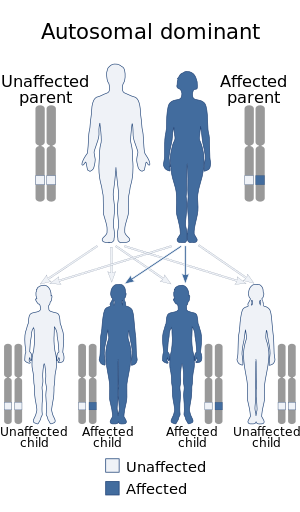Amyloid nephrosis
| Familial renal amyloidosis | |
|---|---|

| |
| This condition is inherited in an autosomal dominant manner | |
| Classification and external resources | |
| Specialty | endocrinology |
| ICD-10 | E85.0 |
| ICD-9-CM | 277.3 |
| OMIM | 105200 |
| DiseasesDB | 33335 |
| eMedicine | med/3379 |
Familial renal amyloidosis (or familial visceral amyloidosis, or hereditary amyloid nephropathy) is a form of amyloidosis primarily presenting in the kidney.
It is associated most commonly with congenital mutations in the fibrinogen alpha chain and classified as a dysfibrinogenemia (see Hereditary Fibrinogen Aα-Chain Amyloidosis). and, less commonly, with congenital mutations in apolipoprotein A1 and lysozyme.
It is also known as "Ostertag" type, after B. Ostertag, who characterized it in 1932 and 1950.
...
Wikipedia
